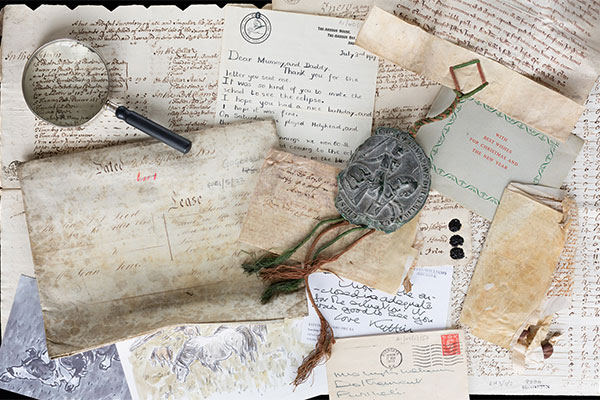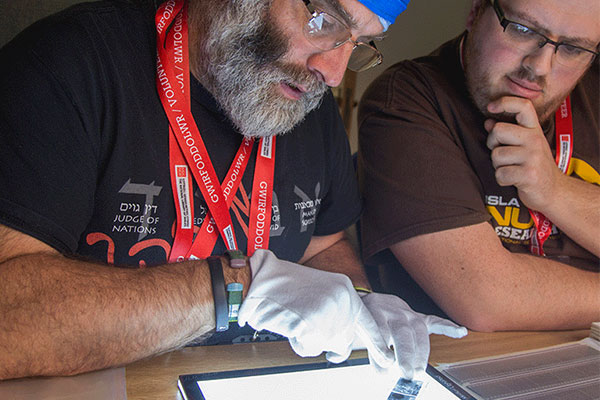An unusual version of Piers Plowman
NLW MS 733B, which was copied on poor-quality parchment in the early fifteenth-century, and is now incomplete, contains an unusual version of the poem which combines variants from the main versions. In the past scholars have paid little attention to this manuscript, but more recent research has suggested that it may provide valuable evidence of the evolution of the poem. The manuscript contains few clues as to its provenance, though one of its early owners, in the fifteenth century, has left his signature on pp. 14, 75, 107 and 137. Damage to the first and last leaves of the manuscript indicate that it lacked covers for part of its history. It was rebound in blind-tooled calf in the first half of the eighteenth century, but retains as flyleaves two cropped leaves from a fourteenth-century manuscript containing a Latin text on canon law, which may well be part of the original binding structure.




